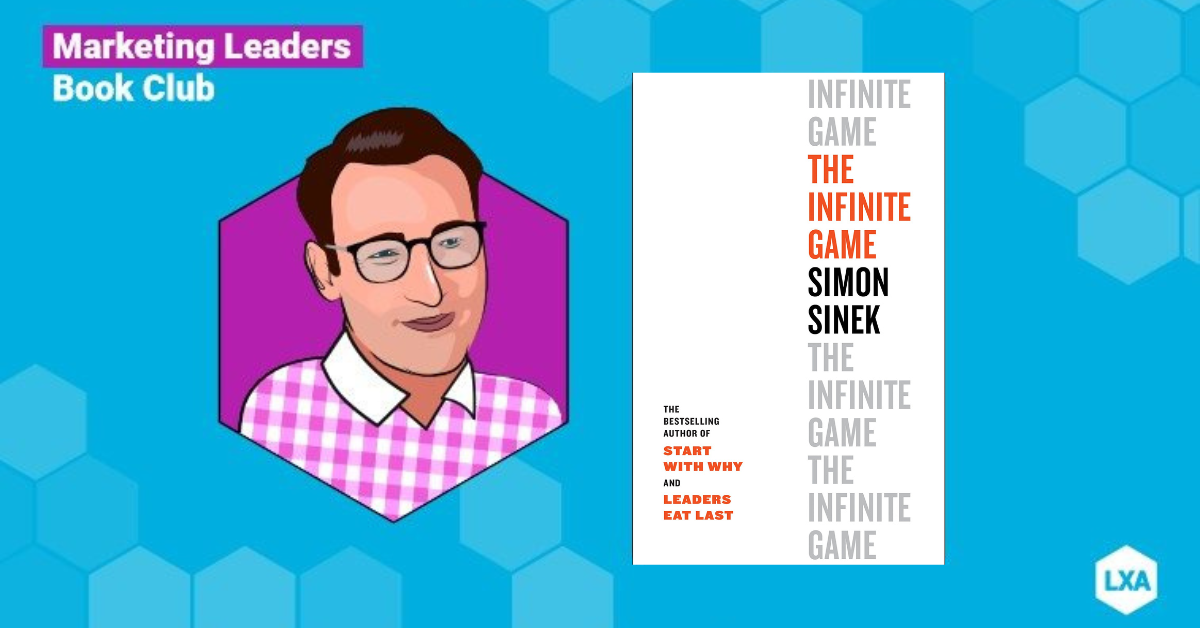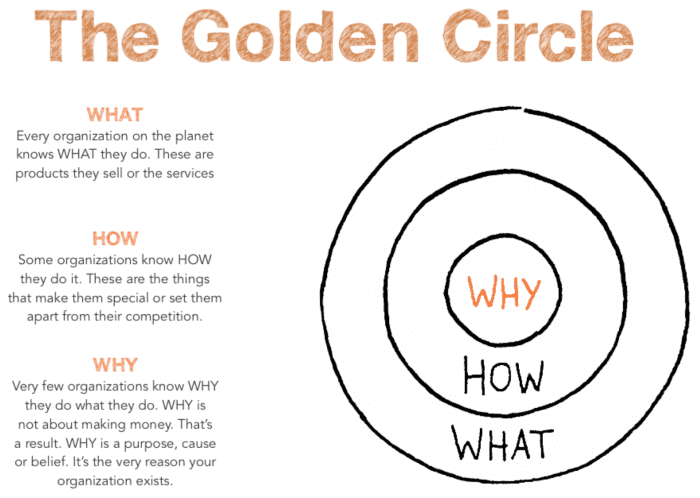
We're bringing you the best insights written in the world of marketing today, thanks to our sponsors at Integrate.
"Trust is a feeling, we can't tell people to trust us," says Simon Sinek. This is a sentiment he brings to his seminal work The Infinite Game.

For Simon most leaders are playing the wrong day. They are playing with a finite mindset in a landscape and industry that is infinite, which leads to lost trust, cooperation, and innovation.
This book bounces from James Carse's ideas from Finite and Infinite Games, where he explains how finite-minded business people and leaders play to win, whereas infinite-mined individuals play to keep playing, which is ultimately for the good of the game. So, Sinek takes this, evaluates finite and infinite leadership within different institutions, and shows how different the results for each can be.
Imagine a world in which the vast majority of us wake up inspired, feel safe at work and return home fulfilled at the end of the day.
– Simon Sinek
We're bringing you the best insights written in the world of marketing today, thanks to our sponsors at Integrate. Stay tuned for more! 📖📚
Why The Infinite Game is Vital for Any Modern Marketer
For many companies, business is not working very well. Simon suggests that approaching business as a finite game is the problem. The solution is a genuine mindset change.
In the book, he makes one key, integral point: business is not a game with a final clock, it is an infinite game. The biggest implication that comes from this is that business people have to play a long game, a very long game. It means ignoring the idea that it's only the next quarter that matters, which many leaders stick to.
We all know what a finite game is right – In football, there are known players, fixed rules and an agreed-upon objective that, when reached, ends the game.
By contrast, an infinite game has no finish line, no exact rules, we may not know who the players are – and there is no such thing as ‘winning’.
So what does Sinek classify as an infinite game? Marriage is an example, as are politics and business.
It’s learning to strategize for the infinite game that Sinek suggests will give effective leaders a competitive edge. And what are the vital ingredients for that strategy?
- A just cause
- A trusting team
- Rivals not competitors
- Existential flexibility
- Courageous leadership
About the Author
Simon is an unshakeable optimist and passionate ethnographer, who truly imagines a world in which the vast majority of us wake up inspired, feel safe at work and return home fulfilled at the end of the day. He has gone on to write more bestsellers and help transform company culture and create a better working world.
Credentials
- Studied law at London's City University and received a BA in cultural anthropology from Brandeis University
- Began his career at the New York ad agencies Euro RSCG and Ogilvy & Mather
- Launched his own business, Sinek Partners
- Has written five books. Many of which appeared on bestseller lists
- Has given talks at The UN Global Compact Leaders Summit and at the TED conference
He is also the creator of the Golden Circle model, which helps give focus to how a business can stand out from similar competitors by communicating its differences. It explains how leaders can inspire cooperation, trust and change in a business, by starting with the "why".

It suggests why some people and organisations are able to inspire others and differentiate themselves successfully. This is because humans respond best when messages communicate with those parts of their brain that control emotions, behaviour, and decision-making.
Fun facts
- Simon was born in Wimbledon, London, United Kingdom and as a child lived in Johannesburg, South Africa, London, and Hong Kong before settling in the United States.
- Simon's WHY Ted Talk has become the third most watched on TED.com, with over 40 million views and subtitled in 47 languages
Top Takeaways
According to the book and its author, if you want to adopt an infinite mindset, you'll need to follow just five principles. These are:
- Advance a Just Cause. This is a vision of a future state that is so attractive that people are willing to make sacrifices to succeed in this vision. The drive to 'win' provides a temporary boost, which is only re-gained by winning again. So, with a just case, people don't need this 'win;, as they are motivated by a larger purpose.
- Build Trusting Teams. Trust leads to a safe environment, where team members are more likely to express vulnerability, or admit to a mistake. It also allows individuals to be honest, especially when it comes to performance shortfalls. They'll also feel safer taking responsibility for their behaviour and asking for help.
- Study Your Rivals. Now, this isn't just studying any rivals, but your worthy ones. A competitive mindset leads to a winning mindset, which results in a finite mindset. In an infinite mindset, other players aren't there to be beaten, they're rivals who can help businesses become better.
- Prepare for Existential Flexibility. With an infinite mindset, individuals expect surprises and are prepared to be transformed by them. They embrace freedom and are open to all possibilities to keep them in the game.
- Demonstrate the Courage to Lead. The pressure individuals face to maintain a finite mindset is high, and overwhelming. It can often tie into careers and professional success. So, it takes courage to adopt an infinite mindset.
The work also outlines three pillars of business, which are:
- Further a larger purpose
- Protect people, which includes employees, customers, and the environment
- Generate profit. This is so the business can remain viable, and advance the previous pillars.
Link to purchase page
Purchase The Infinite Game on Amazon and Audible
Other Books You May Be Interested In
- Hacking Growth by Sean Ellis and Morgan Brown
- Marketing 5.0 by Philip Kotler
- Digital Darwinism 2nd Edition by Tom Goodwin
Stay tuned for more! 📖📚
